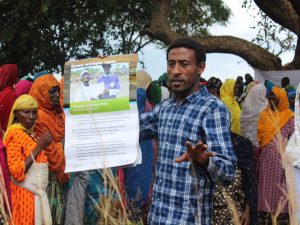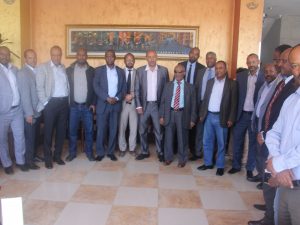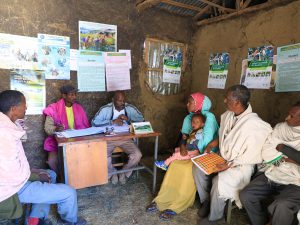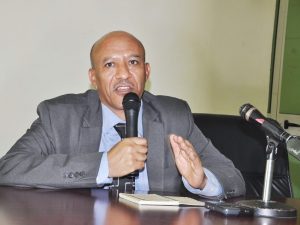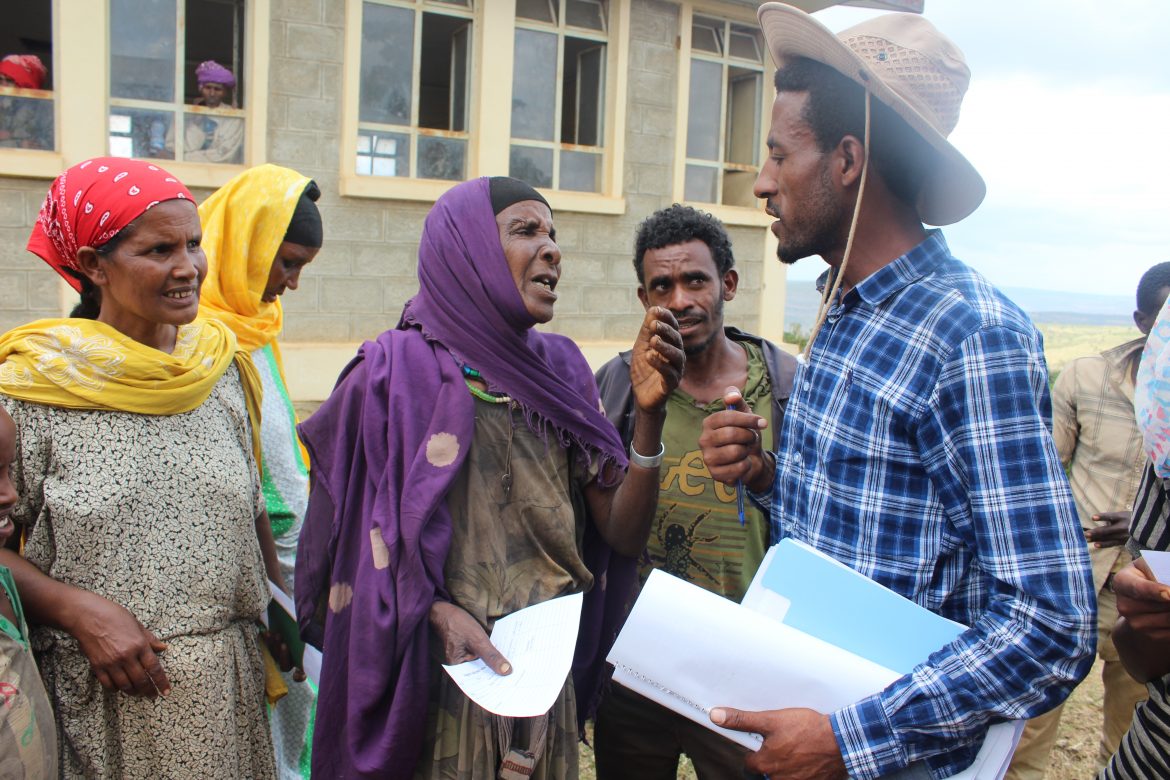
[Header image: A social development adviser consulting an elderly female head of household in Habro Woreda, Oromia.]
In the late 1990s, the Government of Ethiopia introduced the first ever system of land certification to register tenure of rural farmlands. Although first level land certification (FLLC) was a significant step in the early efforts to improve land tenure security, it lacked additional measures to protect the land rights of women, the elderly and people with physical impairments – all of whom are particularly vulnerable to land tenure insecurity.
To better protect these vulnerable populations and protect land tenure, Land Investment for Transformation (LIFT) has established the role of Social Development Officer along with their second level land certification (SLLC) programme. Social Development Officers are trained not only in SLLC and land rights, but also in gender equality and social inclusion. These officers are posted at the woreda level and offer critical support in rural areas in the event of a land tenure issue.
The success of this intervention was recently demonstrated through a case involving Sifrash, a woman living in Farta woreda, Amhara. Sifrash, 45, and her husband used to rent out their land to a local farmer. Following the death of her husband, the tenant registered the land in his name and obtained an FLLC book of holding. In response to this attempted land grab, Sifrash attended a women-only meeting in her woreda where she reported the problem to Hailegeorgis Tegegn, the LIFT Social Development Officer posted there.
In response to Sifrash’s report, a field team set about gathering evidence and double-checking the issuance date of the two FLLC books of holding belonging to Sifrash and the tenant. They determined that the land originally belonged to Sifrash and her deceased husband and subsequently produced a new SLLC book of holding for Sifrash, restoring her rightful land tenure. Additionally, the field team met with the perpetrator of the attempted land grab to inform him that his actions were a crime and would not be tolerated under the new land tenure system.
The ability of Sifrash to report this crime and recover her land can be directly attributed to the role of Social Development Officer becoming part of the new SLLC implementation team. A recent survey of case studies authored by Worwoha Mekonen, the LIFT Gender and Social Development Expert, revealed that Sifrash is just one of 1,088 vulnerable people whose land parcels (2,040 in total since May 2017) have been recovered to them as a result of the LIFT response. Among the beneficiaries of this support have been women in male-headed households, women in polygamous marriages, female heads of households, female siblings, daughters, daughters-in-law, widows and orphan girls.
Thanks to their specialised training in gender equality and social inclusion, Social Development Officers clearly play a critical role in protecting the land rights of these and other vulnerable people.
For more information, please contact the LIFT communications team at info@liftethiopia.com



